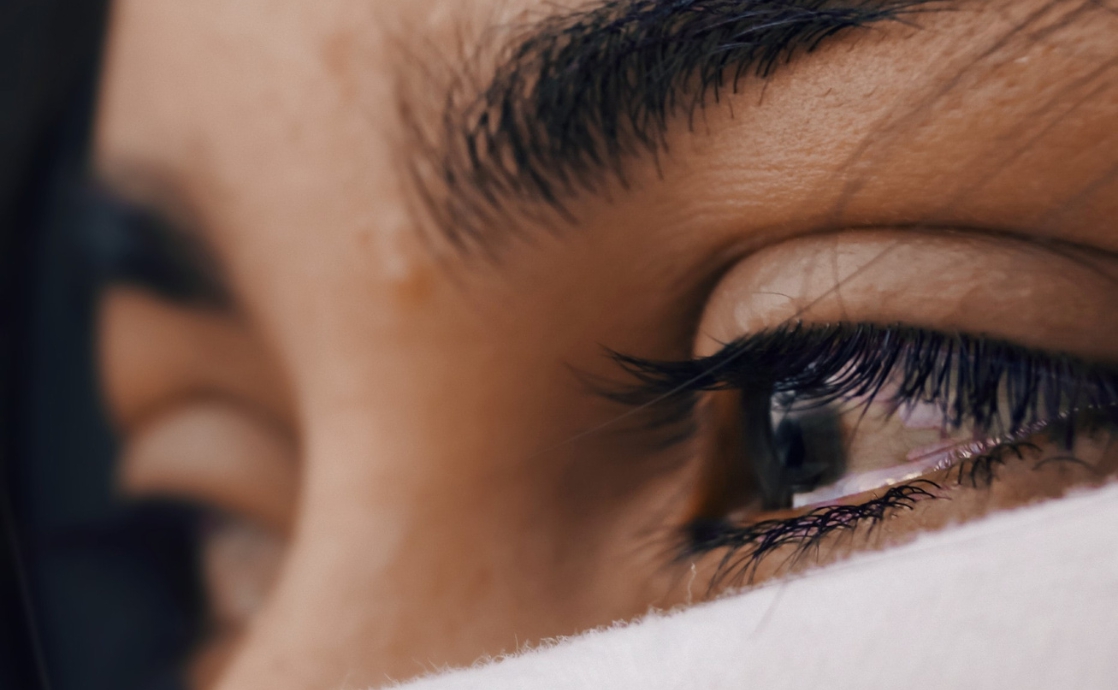The views expressed in our content reflect individual perspectives and do not represent the authoritative views of the Baha'i Faith.
As a survivor of incest and childhood abuse, emotional pain has dogged me all my life and, in a strange way, it’s become somewhat of a friend – because it’s familiar and I know how to live with it.
As I get older and enter retirement, though, I’m finding a lot of new aches and pains in my bones and joints, and I don’t like it. It begs the question: why?
I never wanted to be that old person who talks incessantly about her physical well-being, and now I’ve become her. What’s the point? As usual, when I ask questions like these, I turn to the Baha’i teachings for answers, because I believe that Baha’u’llah, the founder of the Baha’i Faith, and his appointed successors, offer the solutions to my questions.
RELATED: How Movement and Music Can Heal Trauma
The first reminder comes quickly: Abdu’l-Baha, the Interpreter of Baha’u’llah’s teachings, tells us in his writings that no one escapes pain:
Because, when thou lookest with the iron sight, thou wilt find that all mankind is suffering in this earthly world; there is no one in such tranquillity that this state might have been a reward for his good deeds in a former life and there is no soul so happy that this might be the fruit of his past pain!
Abdu’l-Baha said, in this talk given in Paris, that even the messengers of God experienced pain:
All the Divine Manifestations sent by God into the world would have gone through their terrible hardships and sufferings for the single hope of spreading Truth, unity and concord among men. Christ endured a life of sorrow, pain and grief, to bring a perfect example of love into the world – and in spite of this we continue to act in a contrary spirit one towards the other!
The writings of Shoghi Effendi, the Guardian of the Baha’i Faith, have a lot to teach us about the purpose of pain – that it can be used as a means to attain happiness and find the path to self-improvement. A letter written on his behalf to an individual Baha’i in 1935 explains:
Physical pain is a necessary accompaniment of all human existence, and as such is unavoidable. As long as there will be life on earth, there will be also suffering, in various forms and degrees. But suffering, although an inescapable reality, can nevertheless be utilized as a means for the attainment of happiness. This is the interpretation given to it by all the prophets and saints who, in the midst of severe tests and trials, felt happy and joyous and experienced what is best and holiest in life. Suffering is both a reminder and a guide. It stimulates us to better adapt ourselves to our environmental conditions, and thus leads the way to self-improvement.
It’s not easy to find the meaning of pain – sometimes it takes a long time to see that what we thought of as hard to bear has been the cause of infinite blessings, as that same letter goes on to say:
In every suffering one can find a meaning and a wisdom. But it is not always easy to find the secret of that wisdom. It is sometimes only when all our suffering has passed that we become aware of its usefulness. What man considers to be evil turns often to be a cause of infinite blessings.
Two examples come to mind: As a small child, I begged God to stop the abuse. Instead, it only got worse and worse, and it seemed that there was no end to it. Many years after my son had grown up, I realized that if God had answered my prayer and stopped it, chances are high I may have gone on to continue the cycle, as happens so often in families plagued by abuse. It seems like a miracle that I broke this multi-generational pattern of behavior, and my son didn’t grow up experiencing physical or sexual abuse – and for that I am so grateful.
Secondly, as I’ve turned to the Baha’i writings, looking for my path to spiritual development and self-improvement, I’ve found a huge light at the end of the tunnel. As a result, I’ve written many books and many articles that have helped others recover from abuse and trauma. This blessing would not have been possible without the childhood abuse I survived.
Finally, there was a time in my life when my workaholism was at its worst, and my schedule made my life totally unmanageable. I couldn’t imagine dropping even one thing, so I turned to prayer, begging God for relief. Shortly after, I fell and broke my ankle in 3 places. My recovery was compounded by a soft tissue injury which doubled the time it took to heal. I live alone, in a second-floor apartment with no elevator, and at the end of a long hallway. There was no one to help me. Looking after myself was my full-time job for nearly 6 months. I laughed, realizing God had answered my prayers in a way I would never have imagined, because the injury forced me to take a long period of absence from everything in my schedule – and I was grateful.
RELATED: Why We Suffer: Nothing Worth Doing Is Easy
So now I knew that I wasn’t alone in suffering pain, and that it has a purpose and a meaning, but I still had more questions. What can I do to get through the pain? What should my attitude be? Again, Shoghi Effendi’s guidance gave me some answers: rise above it, focus on becoming more spiritual and closer to God:
As we suffer these misfortunes we must remember that the Prophets of God Themselves were not immune from these things which men suffer. They knew sorrow, illness and pain too. They rose above these things through Their spirits, and that is what we must try and do too, when afflicted. The troubles of this world pass, and what we have left is what we have made of our souls, so it is to this we must look to becoming more spiritual, drawing nearer to God, no matter what our human minds and bodies go through.
I know I can do that, one day at a time, through such practices as prayer, meditation, and fasting – and through acquiring virtues such as patience, detachment, faith, trust, and confidence, as Abdu’l-Baha advised:
Turn thou to the Kingdom of thy great Lord with a truthful heart and with all devotion, sincerity and great spirituality and ask to be healed from pain and passions and be confident in the great bounty of thy Lord.
Now, thanks to Abdu’l-Baha’s spiritual counsel, I can also touch the inner parts of me that hurt, while asking God for healing:
When thou wishest to treat nervous pains turn thy whole being to the realm on high with thine heart detached from aught else besides Him and thy soul enraptured by the love of God. Then seek confirmation of the Holy Spirit from the Abha Kingdom, while touching the affected part with utmost love, tenderness and attraction to God. When all these things are combined, be assured that healing will take place.
Although it’s easy for me to forget, in the middle of pain, that the purpose of my life is to be of service to others, here is a Baha’i prayer from Abdu’l-Baha I like to say, to ask God to heal the pain and then to put me firmly on the path He has chosen for me:
O Tender One, Bestowing One, Thou didst calm their pain with the balm of Thy bounty and grace, and didst heal their ailments with the sovereign medicine of Thy compassion. O Lord, make firm their feet on Thy straight path, make wide for them the needle’s eye, and cause them, dressed in royal robes, to walk in glory for ever and ever.
















Comments
Sign in or create an account
Continue with Googleor